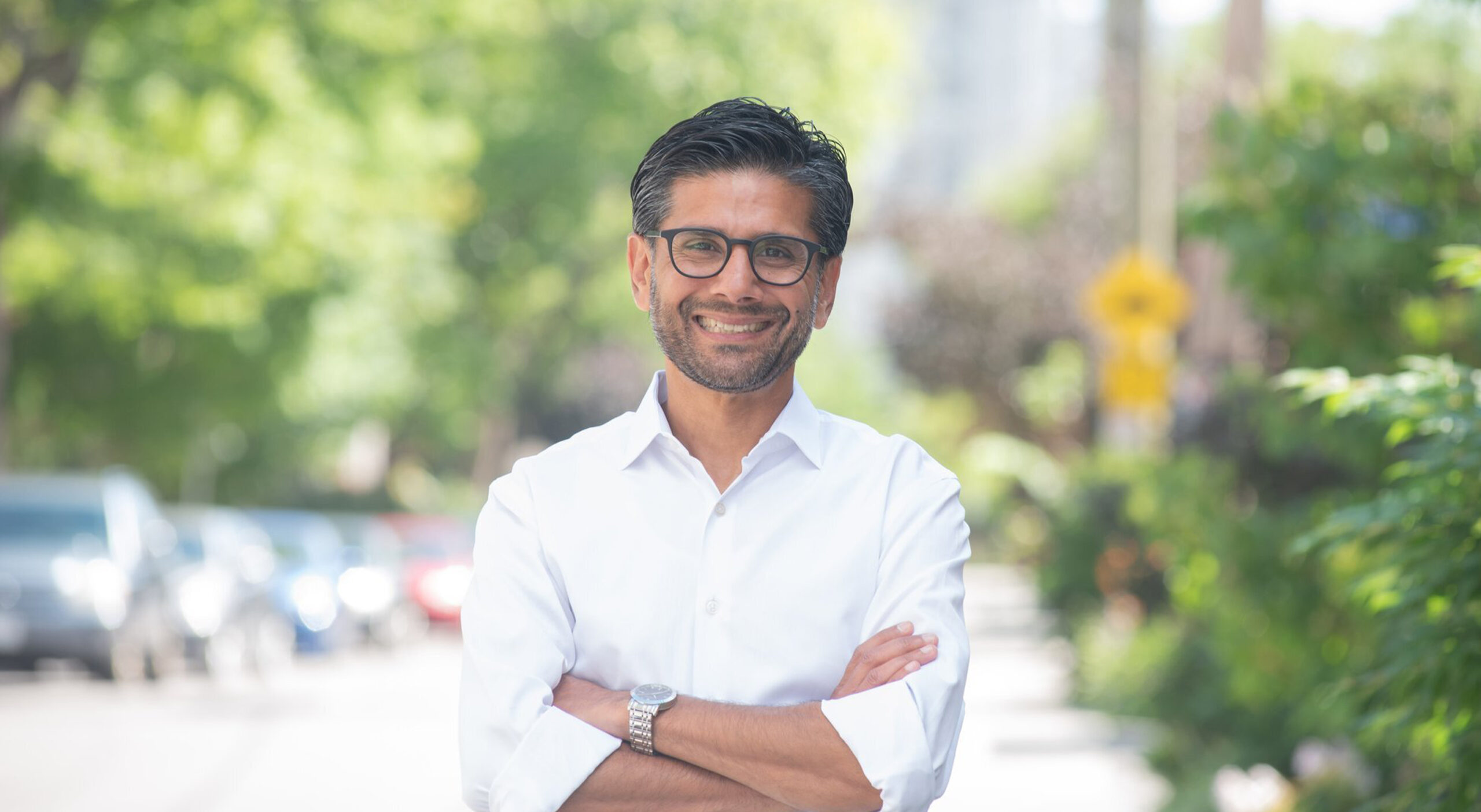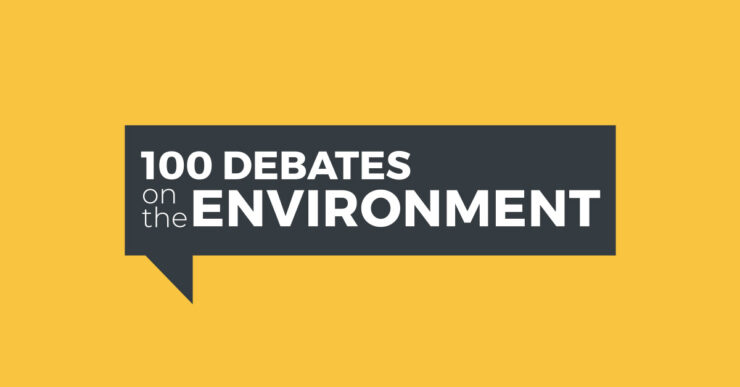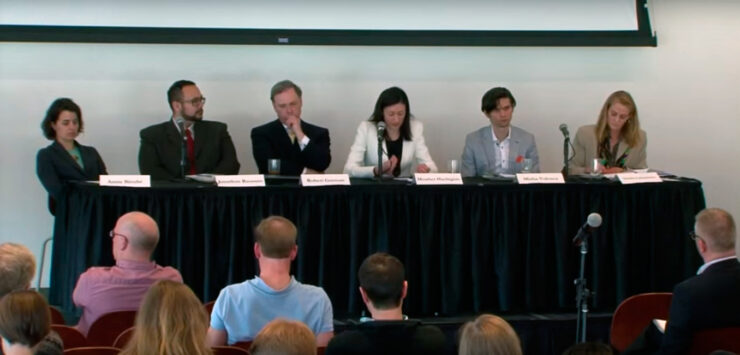NAQVI DISCUSSES NET-ZERO ECONOMY, CLEAN ELECTRICITY, AND FARMBELT
Ottawa Centre MP and Ontario Liberal Party leadership candidate Yasir Naqvi spoke with the Fulcrum about his recently released climate platform. Naqvi, who has joined the race as of June 3, 2023, is one of five candidates in the race including Mississauga Mayor Bonnie Crombie, Beaches—East York MP Nathaniel Erskine-Smith, Don Valley East MPP Adil Shamji, and Kingston and the Islands MPP Ted Hsu.
The Fulcrum (F): Would you like to start by introducing yourself and your general vision for the Ontario Liberal Party?
Yasir Naqvi (YN): Absolutely. My name is Yasir Naqvi, I’m the Member of Parliament for Ottawa Centre and I am running for the leadership of the Ontario Liberal Party.
Like many Ontarians, I’m very concerned about the future of our province. I’ve been travelling the entire province — every four corners — and the top three issues that continue to come up, which have been a total failure of Doug Ford, have been around health care: making sure that people have access to family doctors and nurses, making sure that our emergency rooms wait times are not 20 hours (and in many places, they’re not even open at times).
Education is another big issue, both in terms of class sizes being too big in our K to 12 classes; but then I’m hearing a lot from post-secondary students who are going to college and universities about the amount of tuition fees they’re paying, the level of debt they’re carrying, all the international students and the challenges they’re facing.
[This] leads into the third big issue which is around affordability, both affordability of life and housing is a big issue.
So my impetus for running is that we need a strong, experienced Liberal leader who can really come up with practical solutions to these complex problems. That’s where the Liberal Party has been at its very best.
I’m somebody who has experience both in terms of serving at the provincial and federal level, being a cabinet minister, I’m the only candidate in this race who actually served in the cabinet at a senior level, but also having lived experience as someone who came as an immigrant to Canada at the age of 15. [My p]arents who were professionals as lawyers, never able to practice law, ran a small business, failed at it, and then built their life from ground zero. I can relate to people and the challenges they’re facing, and work with them to ensure that we are coming up with practical Liberal solutions that will make their lives easier to live.
F: Great, thank you. So jumping into your climate platform, North American and global climate activists have expressed serious concerns towards focusing on the development of electric vehicle (EV) infrastructure, as opposed to moving away from car-centric infrastructure and encouraging the use of public transportation instead. As Premier, will you commit to providing more funding to municipalities to improve public transportation?
YN: I often say that electric vehicle manufacturing is a very slim, small sliver of [transportation]. That’s not the only solution we should be championing. Public transit is another big one in terms of enhancing connectivity. I’m really proud of part of the work that has been done here in Ottawa to procure electric buses and transitioning OC Transpo fleets from diesel fuel to electricity driven, but also light rail that is run by electricity. And so that’s one part but then I think we need to look beyond that.
We need to look at technological solutions as it relates to how we build our homes. Our homes have to become net-zero. We have to look at how we can store electricity, so battery storage becomes a big part of it. So there’s many facets and aspects that we need to look at.
And I want to not focus on just one sector, which is what we see Ford doing, which is the auto sector. [It] is important for Ontario, but look at other places as well where we can be the leaders in coming up with those technological solutions, not only for our own use, but for exporting that technology around the world as well because everyone has committed now to a net-zero economy by 2050 and they are looking for those solutions.
F: So as you believe that public transportation is an important part of this, would you commit to providing more funding for municipalities in terms of public transportation?
YN: I want to do two things. I want to work with municipalities to make sure that there’s more public transit and more funding for public transit available, but I also want to make sure that Ontario is playing its role in terms of expanding its network of public transportation.
You look at GO [Transit] for example, GO is only limited to Greater Toronto and Hamilton Area. Why don’t we in Ottawa and Eastern Ontario have access to GO? And connecting various smaller communities? Why are we not expanding it all the way to southwest Ontario, London and Windsor or in northern Ontario or the Niagara Peninsula? So I actually want to see how Ontario can, instead of building more highways like we see under Doug Ford, invest in building that incredible network that is so well-used in the Greater Toronto and Hamilton area and make it available for Ontarians across the province.
F: Great, thank you. You said you would spur innovative electricity solutions by supporting and encouraging distributed clean production. Can you explain how you would incentivize and encourage distributed clean production?
YN: There’s many ways to do it that’s rewarding people for participating. If people are able to share their unused electricity they should get paid for that, or it should reduce their electricity bill because there’s a net benefit that they’re receiving. So we obviously would have to enhance the grid and how we pay for electricity. Not just for wholesale use, but actually net use and if you’re able to share your electricity with somebody else because you didn’t use it, you should get a benefit for it.
So I think there’s many mechanisms and that’s why partnerships are really important with municipalities, local electricity distribution companies, neighbourhood groups, because I think that’s where the future is going in terms of how we manage our electricity that is generated and use it in a smarter way. I was reading a study and I honestly don’t remember the numbers right now, but the point they were making in that study is that we produce enough electricity already to meet a higher demand, it’s just that we are not using it smartly.
F: Thank you. As Premier, what would you do to address the fact that in urban centers and cities roughly 70 per cent of GHG emissions come from buildings?
YN: That’s where I think technological solutions are really important. We need to innovate the manners in which we build [our buildings] so that they are net-zero, including construction materials. hose solutions should be created and Ontario should be the place that does the innovating and manufacturing.
What do net-zero windows look like? What does net-zero drywall look like? What does net-zero bricks and cement look like? So these are real, practical things that need to happen for us to make the idea of net-zero be implemented, and there’s more work that needs to be done to come up with these technological solutions. And I want Ontario to be the place that does that.
The second piece you have to do is building code. You increase the standards you require for building materials that are being used, or the emissions that are coming out of buildings are minimal and hopefully, it becomes net-zero over time. So that’s another tool that is available to provincial governments because they are the ones who design building codes.
F: Thank you. The next question I’d like to ask is about cap-and-trade. You mentioned in your news release that Doug Ford canceled cap-and-trade, which forced the implementation of a carbon tax. As Premier, would you implement cap-and-trade?
YN: I think that what the federal government has done, as a backstop in terms of putting a price on pollution, works. I don’t think we need to reinvent the wheel. I support putting a price on pollution because that’s how you’re going to beat greenhouse gas emissions and motivate people to change their behaviour. I don’t think we need to replicate that work. We did hard work when we brought cap-and-trade but then Doug Ford got rid of it. But I’m glad to see the federal government took action.
I want to go beyond that. And that’s the piece around how we’re building our homes, what kind of infrastructure we’re building and how we’re building it. We still have to build hospitals and schools. How can we make sure that they’re net-zero in their schools and all the technology that will go into coming up with those solutions? Let’s make Ontario the destination for that work.
F: Great, thank you. Next, I’d like to speak about your idea of creating a Farmbelt. You highlighted that protecting farms today also means expanding food production and exports. Regional economic theorists have argued for years that higher economic multipliers come from an import replacement approach, and the agricultural sector contributes an incredible amount of GHG emissions. How would creating a Farmbelt help with this issue?
YN: Right now, Doug Ford is bringing a change that will allow for people to subdivide their farms to be sold for housing. And I think that is a really short-sighted direction and a decision and what I’m suggesting is that we work with local municipalities, we work with farmers and food producers, and create a farm belt across Ontario that will protect those farms in perpetuity.
So that we can remain food independent, so that we can produce more local foods right here in Ontario that will not only meet our needs, but needs across the country and around the world as well. So that’s the step I’m proposing that we do and I’m getting a tremendous amount of support to create a Farmbelt, because it will protect these important lands for food production.
The thing we have to be mindful of though is that we are a winter northern country. And so you get certain limitations when it comes to farming in winter months, unless you’re relying on greenhouses to do that, which are quite resource-intensive in terms of the amount of energy needed to produce goods. I haven’t read any study that has demonstrated to me that Ontario could be totally independent from any imports in terms of food, given that we’ve got such long winter months. Can we increase our yield in the summer months so that we can allow for us to store for future months? I’m sure we can do better than what we do right now. But the first step is to not develop prime agricultural land for non-agricultural purposes, and we need to protect those lands.
F: Thank you. My final question is what would you say to young people who are worried about how climate change is going to affect their lives and futures?
YN: I will say to them that they need to engage in the political process where a lot of these decisions are made, and what they need to be really mindful of is the practicality of these solutions. A lot of people put a lot of solutions that sound very ambitious, but may not be practical to implement in the short-term.
And that’s something that I’ve learned in politics, is that things can only work if you can persuade people that it is in their best interest, and humans by nature resist change. That’s sort of our nature, and so you have to be very practical in the manner in which you have to bring that change. And that’s why my big focus is on practical changes that will not only in a real way fight climate change but a way that people accept.
—
Liberal Party members can cast a ballot in the leadership election on Saturday, November 25, 2023 and Sunday, November 26, 2023.







